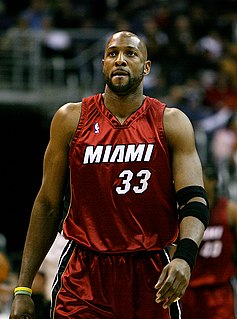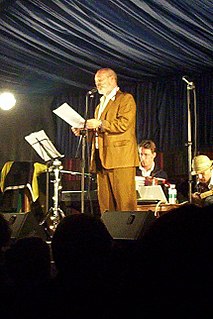A Quote by Matthew Mercer
Society, in general, has taught for many generations that when you reach a certain age, you have to learn to stop playing.
Related Quotes
For decades, many blacks were reluctant to pursue a profession that was associated with servitude. If you went to school, it was to become a lawyer or doctor. Older generations didn't understand why one would spend money to learn how to chop, peel, dice, and saute vegetables when that trade could be taught at home.
I am not a man of many words, but I can honestly say that playing football is all I have ever wanted to do and to have had such a long and successful career at Manchester United has been a real honour. This was not a decision that I have taken lightly but I feel now is the right time for me to stop playing. To have been part of the team that helped the Club reach that 19th title is a great privilege.
We believe that we live in the 'age of information,' that there has been an information 'explosion,' an information 'revolution.' While in a certain narrow sense this is the case, in many important ways just the opposite is true. We also live at a moment of deep ignorance, when vital knowledge that humans have always possessed about who we are and where we live seems beyond our reach. An Unenlightenment. An age of missing information.
The family of Dashwood had long been settled in Sussex. Their estate was large, and their residence was at Norland Park, in the centre of their property, where, for many generations, they had lived in so respectable a manner as to engage the general good opinion of their surrounding acquaintance. The late owner of this estate was a single man, who lived to a very advanced age, and who for many years of his life, had a constant companion and housekeeper in his sister.
As for certain lesser faults, we must believe that, before the Final Judgment, there is a purifying fire. He who is truth says that whoever utters blasphemy against the Holy Spirit will be pardoned neither in this age nor in the age to come. From this sentence, we understand that certain offenses can be forgiven in this age, but certain others in the age to come.




































